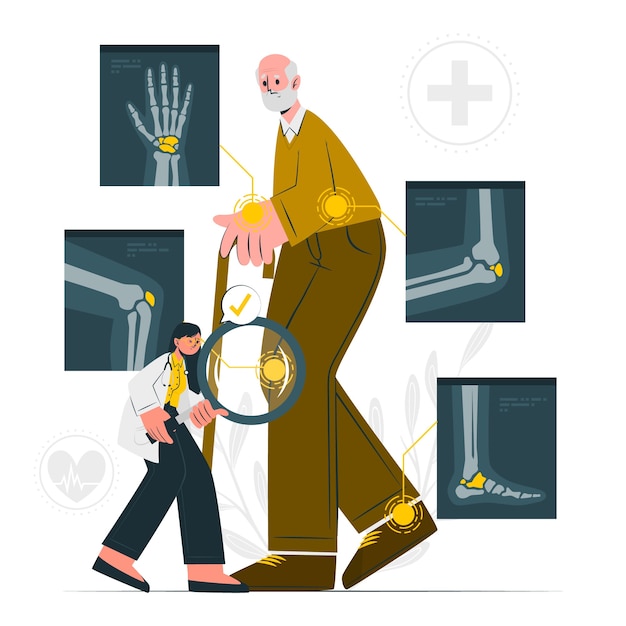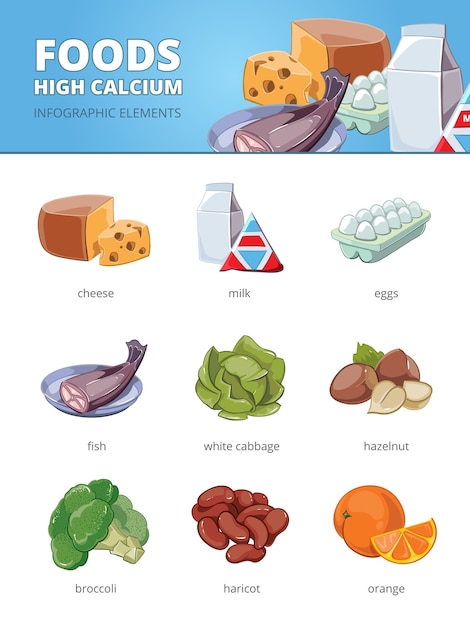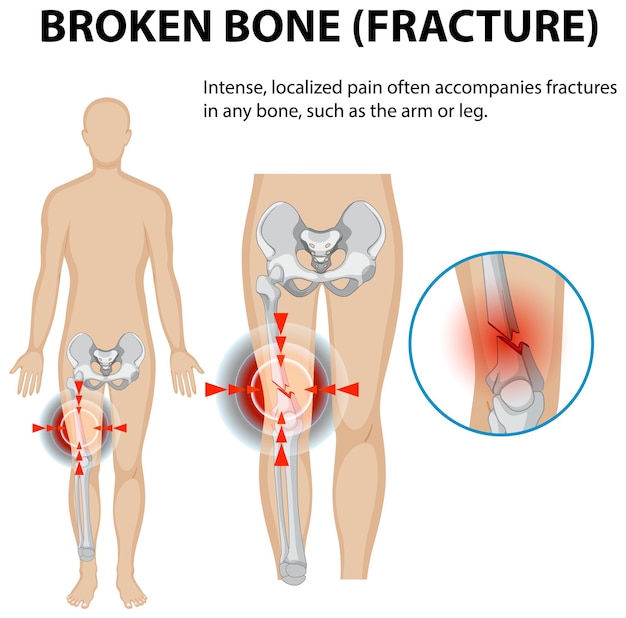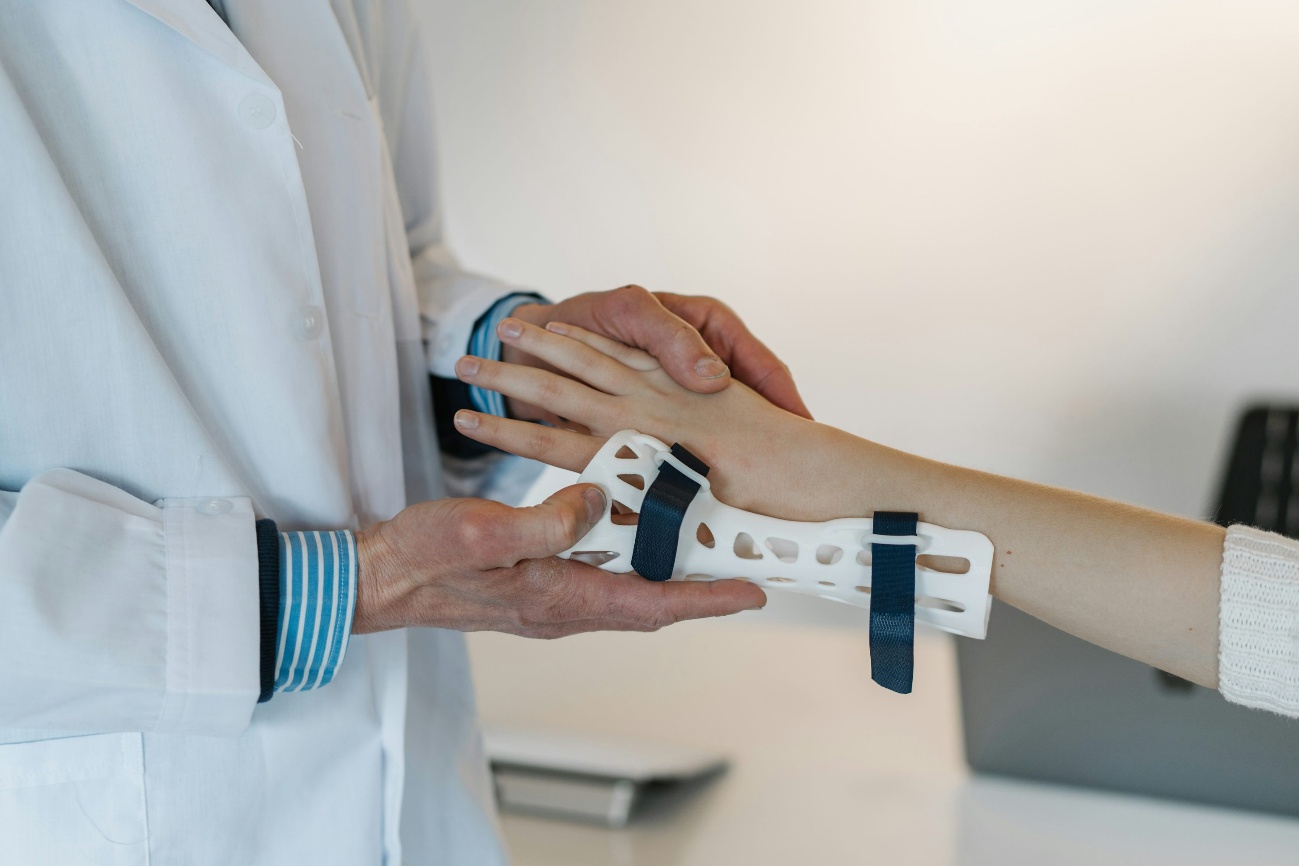Calcium is one of the most critical nutrients for maintaining strong bones and preventing bone-related diseases like osteoporosis. It supports skeletal strength, helps muscles function, and plays a vital role in nerve signaling and blood clotting. However, many people fail to get enough calcium, especially as they age.
Over time, low calcium levels can lead to decreased bone density, making bones brittle and prone to fractures. That’s why calcium deficiency prevention is essential for long-term health, particularly in women, older adults, and individuals with specific health conditions.
In this blog, we explore the impact of calcium on bone health, the dangers of deficiency, and practical ways to improve your calcium intake through nutrition.
Why Is Calcium Important for Bone Health?
Nearly 99% of the body’s calcium is stored in the bones and teeth, giving them structure and strength. Calcium also plays a role in:
- Muscle function
- Blood clotting
- Nerve transmission
- Hormone release
When calcium levels in the blood drop, the body pulls calcium from the bones to maintain critical functions, weakening the skeleton over time.
What Is Osteoporosis and Why Should You Care?
Osteoporosis is a condition that causes bones to become weak and brittle, increasing the risk of fractures even from minor falls or injuries. It is often called the “silent disease” because bone loss occurs gradually without obvious symptoms until a fracture happens.
Risk Factors for Osteoporosis:
- Age (especially over 50)
- Menopause
- Calcium and Vitamin D deficiency
- Sedentary lifestyle
- Smoking and excessive alcohol use
- Family history of osteoporosis
Women are particularly vulnerable due to hormonal changes after menopause, which accelerate bone loss.
How Calcium Deficiency Affects the Body

Calcium deficiency doesn’t just impact bones — it affects muscles, nerves, and overall health. When your body lacks calcium, it prioritizes vital functions over bone health, increasing the risk of osteoporosis and fractures.
Key Signs of Calcium Deficiency:
- Frequent bone fractures
- Muscle cramps and spasms
- Numbness or tingling in fingers
- Weak and brittle nails
- Tooth decay
- Fatigue and low energy levels
While symptoms may be mild at first, long-term deficiency significantly raises the risk of developing osteoporosis.
Calcium Deficiency Prevention: Why Nutrition Matters
Good nutrition is your first line of defense against osteoporosis and bone loss. Calcium deficiency prevention starts with ensuring you consume enough calcium daily to support bone strength and density.
According to health guidelines, adults generally need:
- 1,000 mg/day(ages 19–50)
- 1,200 mg/day(women 51+ and men 70+)
Pregnant and breastfeeding women may need higher amounts to support their baby’s growth and their own health.
Best Dietary Sources of Calcium

Top Calcium-Rich Foods:
- Dairy products:Milk, yogurt, cheese
- Leafy greens:Kale, broccoli, bok choy, collard greens
- Fortified plant-based milk:Almond, soy, oat
- Fortified cereals and juices
- Tofu and tempeh
- Canned fish with bones:Sardines, salmon
- Nuts and seeds:Almonds, chia seeds, sesame seeds
- Legumes:White beans, chickpeas, lentils
Eating a variety of these foods daily supports calcium deficiency prevention and protects your bones.
The Role of Vitamin D in Calcium Absorption
Getting enough calcium is only half the equation. Your body also needs Vitamin D to absorb and use calcium effectively. Without it, much of the calcium you consume is wasted.
Sources of Vitamin D:
- Sunlight exposure
- Fatty fish (salmon, mackerel)
- Egg yolks
- Fortified foods
A combination of calcium-rich foods and Vitamin D supports bone health and reduces the risk of osteoporosis.
Impact of Calcium Deficiency on Fractures and Bone-Related Diseases

Long-term calcium deficiency directly impacts bone density, making bones fragile and prone to fractures. This is especially dangerous for older adults, where hip fractures can lead to serious complications, including loss of mobility and independence.
Other Bone-Related Risks:
- Osteopenia:A precursor to osteoporosis with lower-than-normal bone density
- Kyphosis:Curved spine due to weakened vertebrae
- Height loss:Caused by compression fractures in the spine
- Increased risk of falls:Due to muscle weakness linked to low calcium levels
Proactive calcium deficiency prevention reduces these risks and supports a healthier, more active lifestyle.
Calcium Supplements: When Diet Isn’t Enough
Some individuals struggle to meet their calcium needs through diet alone. In such cases, supplements may be necessary, especially for:
- Postmenopausal women
- People with lactose intolerance or dairy allergies
- Individuals with digestive disorders affecting nutrient absorption
Types of Calcium Supplements:
- Calcium carbonate:Affordable, best taken with food
- Calcium citrate:Easier to absorb, can be taken on an empty stomach
- Calcium combined with Vitamin Dfor better absorption
Supplement Tips:
- Stick to recommended doses to avoid kidney stones or other side effects.
- Split doses over the day for better absorption.
- Consult a healthcare professional before starting supplements.
Exercise and Lifestyle Tips for Stronger Bones
Nutrition is crucial, but your bones also respond to physical activity. Weight-bearing exercises help stimulate bone growth and maintain density.
Recommended Activities:
- Walking, jogging, or hiking
- Weightlifting or resistance training
- Yoga or Pilates
- Dancing or aerobics
Avoid smoking and limit alcohol, as both increase bone loss risk.
Who’s Most at Risk for Calcium Deficiency and Osteoporosis?
Some groups are more prone to calcium deficiency and should be extra mindful of their intake:
- Women over 50
- Men over 70
- People with eating disorders
- Vegans or vegetarians without proper planning
- Those with kidney disease or gastrointestinal disorders
- People on medications like steroids
If you fall into any of these categories, prioritize calcium deficiency prevention to protect your bone health.
When to Seek Medical Help for Bone Health Concerns

If you’re experiencing frequent fractures, height loss, or other symptoms of bone weakness, it’s essential to speak with a healthcare professional.
Your doctor may recommend:
- A bone density scan (DEXA)
- Blood tests to check calcium and Vitamin D levels
- Personalized nutrition and supplementation plans
Additionally, if bone-related health concerns impact your ability to work or perform daily tasks, you may need official documentation for medical leave.
Final Thoughts
Calcium is essential for keeping bones strong, maintaining posture, and preventing fractures. Ignoring calcium deficiency prevention increases the risk of osteoporosis and serious bone injuries—especially as you age.
The good news? Simple nutrition changes, exercise, and supplementation when needed can protect your bones for years to come. Prioritizing bone health now helps maintain your strength, mobility, and independence later in life.
Get a Real Doctor’s Note Online with My Dr’s Note
If you’re managing a bone health condition, recovering from a fracture, or need time off to focus on treatment, My Dr’s Note is here to help. We provide secure, legitimate documentation designed to meet school or work requirements — all from the comfort of your home.
Our services include:
- Online FMLA certificationfor extended medical leave
- Medical certificates for leaverelated to injuries or recovery
- Real doctor’s notes for workor school—delivered quickly and confidentially
Skip the hassle of in-person visits. You can buy a doctor’s note online with ease and get the paperwork you need, backed by licensed professionals.
Contact My Dr’s Note today to handle your documentation needs and focus on your recovery with confidence.


